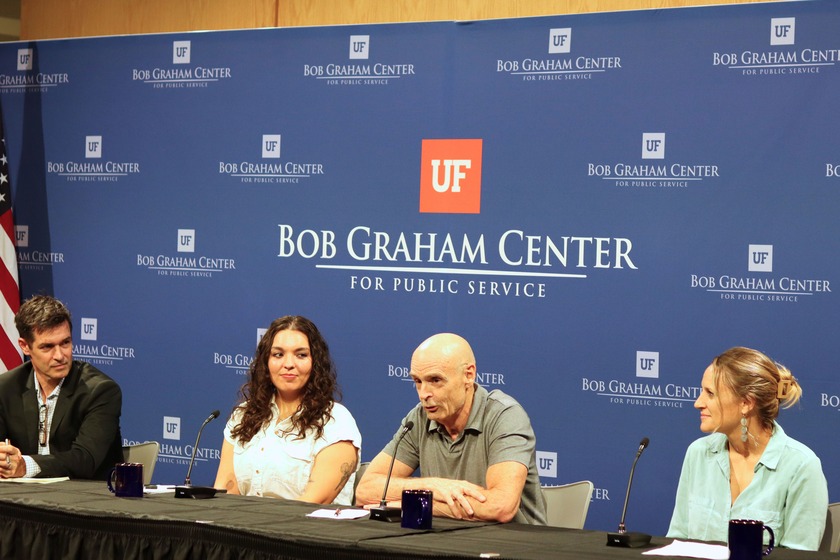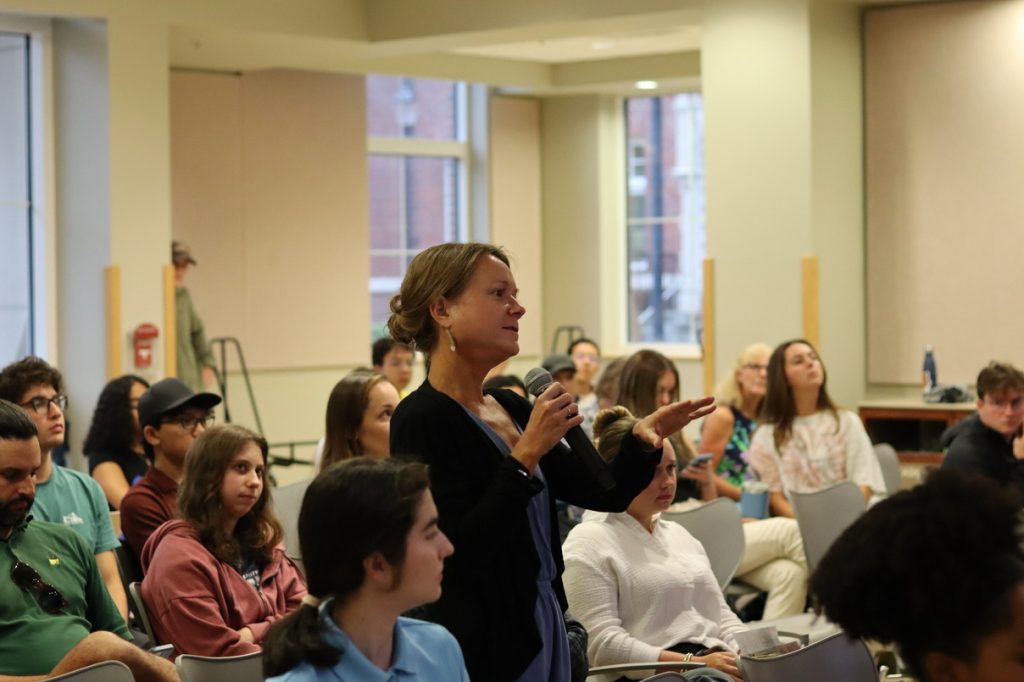On September 10, leaders in environmental journalism, history, architecture and engineering gathered at Pugh Hall to launch the UF Gulf Scholars Program, a new initiative of the Bob Graham Center for Public Service at the University of Florida. The program aims to foster stewardship, resiliency and innovation in the Gulf of Mexico by providing students with hands-on-experience to explore its environmental, social, economic, political and cultural dynamics.
“The challenges facing the Gulf are messy and we will rely on a wide variety of skill sets to adapt and plan for the future,” said Becca Burton, Gulf Scholars program coordinator. “With the help of the Center for Coastal Solutions, we hope our courses, experiential learning opportunities and cohort meetings will help students develop a strong sense of place and shared mission to ensure the Gulf’s ability to support future generations.”

“The scale of challenges are enormous with regards to climate change and how intensively we’ve developed the landscape,” said Christine Angelini, Ph.D., director of the UF Center for Coastal Solutions and steering committee member. “For people in coastal regions, when the environment declines, so does their quality of life.”
Angelini, along with Jeff Carney, associate professor in the University of Florida School of Architecture, Jack Davis, Ph.D., history professor and environmental journalist Marlowe Starling, participated in a panel exploring how climate, culture and sustainability efforts can shape the Gulf’s future.
“I like to think of resilience as an opportunity to transform what we do,” said Carney. “Change will present you with an opportunity.”

The panelists shared ideas for engaging the public in research and communication amid declining trust in science and higher education, and emphasized the need for taking the time to build meaningful connections. Starling, for example, advised against journalists “parachuting” into communities, reporting on an issue and quickly leaving, and instead encouraged reporters to immerse themselves in the communities they tell stories about and continuously enrich these relationships. Panelists wrapped up by pinpointing key areas where students from diverse disciplines can drive meaningful change: from investigative journalism spotlighting environmental crises, to leveraging the power of art to influence policy, and drawing critical connections between environmental change and public health. Embracing interdisciplinary approaches is also key to crafting innovative and far-reaching solutions, they noted.
“A point that came across from our panelists tonight is that there’s a real space for imagination and creative thinking and trying to imagine, what to this point has seemed, unimaginable,” said Matt Jacobs, Ph.D., director of the Bob Graham Center for Public Service, which hosted the event.
—
By Megan Sam
